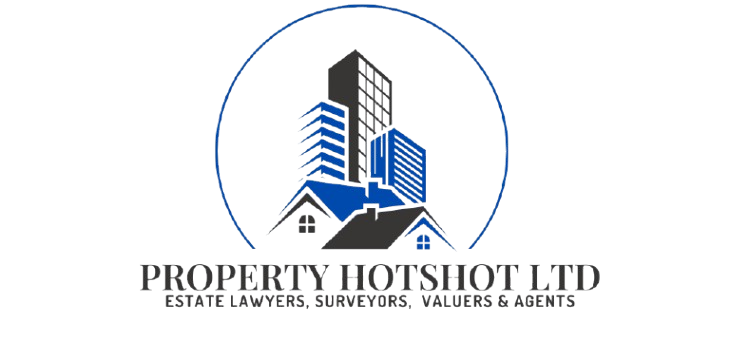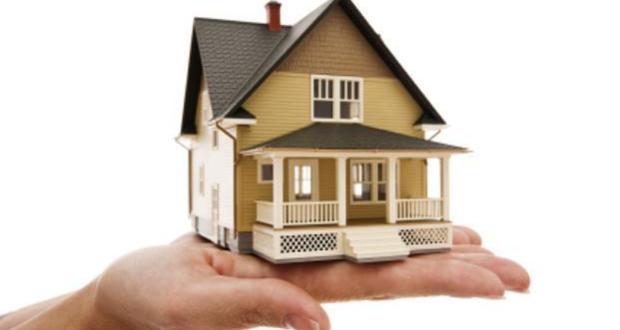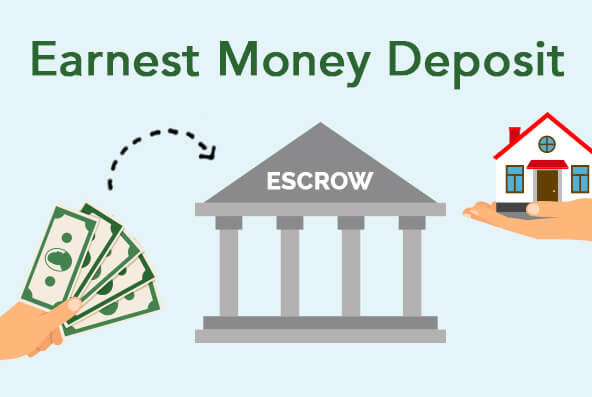Owning a home is a big dream for many people, especially for those who earn little money. For low-income earners in Nigeria, owning a home usually means having a small but comfortable house in a safe and affordable area. It might not be a big house in the city center, but it can be a decent home in places where prices are lower, like the outskirts of big cities or smaller towns. To make this dream real, it is important to learn about current housing prices and how much homes cost in these areas. This helps to know what kind of house you can afford. Setting realistic goals that match your income is also very important. By understanding how much you can save and spend, you can plan step by step to own your own home without too much stress. This way, owning a home becomes possible even for low-income earners. In this informative write-up, we will open your eyes to certain things you need to know when planning to own your own property as a low-income earner in Nigeria.
Financial Planning and Budgeting
Owning a home is a big goal for low-income earners, and good financial planning and budgeting are the secret tools to make this dream come true. The first step is to create a realistic and detailed budget. This means knowing exactly how much money you earn every month and then listing all your expenses. Your expenses should be divided into three groups: needs, wants, and savings. Needs are things you must pay for, like food, rent, electricity, and transport. Wants are things you enjoy but can live without, like watching movies or buying snacks. Savings is the money you set aside to buy your home in the future.
A very helpful rule to follow is the 50-30-20 rule. This rule says you should use 50% of your income for your needs, 30% for your wants, and 20% for savings. For example, if you earn ₦30,000 a month, ₦15,000 should go to needs, ₦9,000 to wants, and ₦6,000 to savings. This rule helps you balance your spending and save money steadily.
To succeed, you must track your monthly expenses carefully. Write down every amount you spend and check if you are following your budget. If you spend too much on wants, you may need to cut back and save more. You can use simple notebooks or phone apps to help you keep track. Managing your money well means you avoid waste and have enough savings to pay for your home when the time is right.
Saving strategies
Saving money is the most important step for low-income earners who want to own a home in Nigeria. It might seem hard at first, but with good plans and discipline, it becomes easier. One smart way to start saving is by opening a special savings account just for your home. This account is different from where you keep money for daily use. By having a dedicated home savings account, you will not be tempted to spend the money on other things. Some banks even offer accounts that give you extra interest or lock your money for a time, helping your savings grow faster.
Another useful idea is to automate your savings. This means setting up your bank to move a certain amount of money from your main account to your home savings account every month without you having to do anything. When you do this, saving becomes a habit, and you won’t forget or delay putting money aside. It is also important to set clear savings goals. For example, decide how much you want to save each month and how much you need for your home. This will keep you focused and motivated.
To save more, you should look at your spending and cut down on things you do not really need. For example, eating out often can be expensive. Cooking at home saves money and is healthier. You can also reduce costs by cancelling subscriptions you rarely use, like multiple streaming services, or by negotiating your rent to pay less if possible. Every small amount saved can add up to a big sum over time.
In Nigeria, many people use cooperative savings groups called “ajo” or “esusu”. These are groups where members agree to save a fixed amount regularly. Each member takes turns receiving the total money collected. This helps people save money even if they find it hard to save alone. Joining a trustworthy cooperative can give you access to a lump sum that you can use as part of your home payment or to boost your savings.
Smart investing strategy to grow your savings
For low-income earners in Nigeria, owning a home might seem like a big challenge. But one secret to making this dream come true is smart investing. Instead of just keeping your money in a regular savings account in a bank where it grows very slowly, you can put your money into safe investments that help it grow faster. This way, you can save more money over time and use it to buy your own home.
One good way to invest safely is by using low-risk instruments like mutual funds and fixed deposits. Mutual funds are groups of money collected from many people and managed by experts who invest in different things like government bonds or big companies. This helps reduce risk because your money is spread out. Fixed deposits are another safe option where you give your money to a bank for a fixed time, like six months or one year, and the bank pays you extra money called interest. Fixed deposits usually give higher interest than regular savings accounts, so your money grows faster and safely.
Another smart idea is fractional real estate investment. Buying a whole house or land can be expensive, but some companies now allow you to buy a small part of a property with little money. This means you can start investing in real estate without needing a lot of money. As the property’s value grows, your small share also becomes more valuable. This helps you build capital slowly and get closer to owning your own home.
The key to smart investing is to start small and be consistent. Even if you save just a little money every month and put it into these safe investments, over time your savings will grow. It is also important to learn about different investment options and choose those that fit your budget and goals. By doing this, you protect your money from losing value because of inflation, which makes prices go up.
How to leverage financial assistance and housing schemes
Owning a home can be very hard for people who earn little money, but there are special programs that can help you achieve your dreams. One of the best ways low-income earners in Nigeria can buy a house is by using financial help from the government and banks. These programs make it easier and cheaper to get a home.
A very important government program is the National Housing Fund (NHF). This fund helps Nigerians save money every month so they can borrow money later to buy or build a house. To join, you must be at least 18 years old and working, either in a job or running a small business. You need to save 2.5% of your monthly income into the fund for at least six months. After this, you can apply for a loan to buy a house. The NHF loan can be as much as 15 million naira, with a low interest rate of 6% per year. You can pay back the loan over many years, sometimes up to 30 years, which makes the monthly payments smaller and easier to afford. For houses costing 5 million naira or less, you might not even need to pay a big upfront amount, called equity, which is a big help.
Besides the NHF, private mortgage banks also offer home loans. These banks work with the NHF to give loans to people who qualify. They help with the paperwork and make sure you understand the loan terms. Some banks offer flexible payment plans and low interest rates to make owning a home possible for more people.
There are also other financial benefits like capital subsidies, tax abatements, and credit-linked subsidies. These are special discounts or help that reduce the cost of buying a home or lower the taxes you pay. For example, some programs might help pay part of your home’s price or give you tax breaks because you are buying a home for the first time. These benefits make owning a home cheaper and easier for low-income earners.
Credit management and loan preparation
Before you go for a mortgage as a low-income earner in Nigeria, it is very important to manage your credit well and prepare properly. This helps you borrow money easily and pay it back without problems. Tips for a proper credit management and loan preparation will be provided below:
You need to improve your credit score to qualify for a mortgage. Your credit score is like a report card that shows how well you pay your bills and debts. To have a good credit score, you must pay your bills on time every month. This includes electricity bills, phone bills, and any other loans you have. Also, try to reduce the amount of money you owe. If you have many debts, it can make lenders worried that you might not pay back a new loan. So, paying off old debts little by little helps improve your credit score and makes you look responsible to banks.
In addition, you need to manage your debt-to-income ratio very well to qualify for a mortgage. This ratio shows how much money you owe compared to how much you earn. For example, if you earn ₦50,000 a month and spend ₦20,000 on debts, your debt-to-income ratio is 40%. Banks want this ratio to be low because it means you have enough money left to pay a new loan. If your debts are too high, banks may say no to your mortgage loan application. So, keeping your debts low compared to your income helps you qualify for a home loan.
Furthermore, before you start looking for a home, it is smart to get a pre-approval for a mortgage loan. Pre-approval means the bank checks your income, credit score, and debts to tell you how much money they can lend you. This helps you know your borrowing power and avoid looking at homes you cannot afford. It also shows sellers that you are serious and ready to buy, which can help you get a better deal. To get pre-approval, you usually need to provide proof of income, bank statements, and identification.
In Nigeria, programs like the National Housing Fund (NHF) help low-income earners get affordable loans as mentioned earlier, but you must meet requirements like steady income and good credit. By managing your credit well, reducing debts, and getting pre-approved, you will increase your chances of owning a home.
Alternative and innovative approaches
One of the most innovative approaches to owning a house as a low-income earner is to look for affordable housing in developing or subsidized areas. These are places where the government or private groups build houses at lower prices to help people who earn less money. Often, these areas are outside big cities like Lagos or Abuja, where land and house prices are cheaper. For example, places like Ikorodu or Badagry in Lagos offer homes that cost less but are still safe and comfortable to live in. Choosing such areas can make owning a home easier because the prices fit better with what low-income earners can afford.
Another helpful idea is joining housing cooperatives. A housing cooperative is a group of people who come together to save money and buy land or build houses as a team. When many people pool their money, it becomes easier to afford land and building costs. Members of the cooperative share the work and the benefits, so everyone can get a home without paying a lot at once. This way, low-income earners can support each other and make homeownership possible.
Besides these, there are alternative financing options beyond the usual bank loans or mortgages as discussed earlier. Traditional mortgages can be hard to get because they need big down payments and good credit but microfinance institutions and community savings groups offer smaller loans with easier terms. These loans help people start building or buying homes little by little. Also, rent-to-own schemes let people rent a house and use part of their rent money to buy it later. This helps those who cannot pay a big amount upfront but want to own a home over time.
Innovative building methods also help reduce costs. Using prefabricated or modular homes means houses are built faster and cheaper. These homes are made in parts and put together quickly, saving money on materials and labor. This technology is becoming popular in Nigeria because it makes housing affordable and available faster.
Psychological and behavioral aspects
Owning a home as a low-income earner is not just about money. How you think and behave plays a very important role in making this dream come true. One of the most important things is discipline. This means being careful and steady with your money. Saving little by little every month, even when it is hard, helps you build the money needed to buy a home. It takes patience too, because owning a home does not happen overnight. You must wait and keep saving without giving up, even if it takes a long time.
Another helpful idea is to celebrate small wins or milestones. For example, when you save your first ₦10,000 or pay a part of your house deposit, take time to feel proud. These small celebrations keep you motivated and remind you that you are moving closer to your goal.
It is also very important to avoid impulsive financial decisions. Sometimes, people spend money quickly on things they want but do not really need, like expensive phones or clothes. These sudden purchases can stop you from saving enough for your home. Being careful and thinking before spending helps you stay on track.
Due diligence and risk management
You should be careful and check everything before buying a property. This careful checking is called due diligence. It helps to avoid problems and protect your money. One way to do this is by working with trusted real estate agents. These agents know the housing market well and can help you find good homes that are real and safe to buy. Always choose agents who have good reviews or are recommended by people you trust.
Another very important step is to verify the property’s title and permits. A property title is a legal paper that proves who owns the land or house. In Nigeria, some important documents to check are the Certificate of Occupancy (C of O), Deed of Assignment, and Survey Plan. These papers show that the seller really owns the property and has the right to sell it. You can visit the Land Registry office in the state where the property is located to confirm that these documents are real and that no one else is claiming the property. This step is very important because sometimes people sell land that does not belong to them, and buyers lose their money and the home.
It is also important to be aware of fraud and scams in the housing market. Some people pretend to be owners or use fake documents to trick buyers. To avoid this, always check the seller’s identity carefully and ask for several forms of identification. You can also hire an independent surveyor to measure the land and check the property’s boundaries. Never pay large sums of money before you have confirmed that the property is genuine and all the papers are correct. Registering the Deed of Assignment at the Land Registry after buying is also necessary to make sure the property is officially yours and to stop future problems.
Long-term sustainability of homeownership
Buying a house in Nigeria is only the first step. To keep your home for a long time, you need to plan carefully for the costs that come after buying it. These ongoing costs include mortgage payments (for those who took loan to purchase the property), property taxes, insurance, and maintenance.
Mortgage payments are the monthly money you pay back if you borrowed to buy your home. It is important to make these payments on time to avoid losing your home. Property taxes are fees you pay to the government every year because you own a house. These taxes depend on where your house is and how much it is worth. Insurance protects your home from damage caused by fire, theft, or other problems. Maintenance means fixing things that break or get old, like the roof, doors, or pipes. If you don’t take care of your home, it can lose value and become expensive to repair later.
Another important part of keeping your home is being ready for changes in the economy. Sometimes, prices of things go up because of inflation. This means your money might not buy as much as before. For example, the cost of building materials or transport can increase, making maintenance more expensive. Also, if your income changes or the economy becomes difficult, paying your mortgage and other costs can be hard. Planning ahead by saving money and budgeting carefully helps you handle these changes.
In Nigeria, the cost of building and owning a home has gone up because of inflation and other economic problems. This makes it harder for low-income earners to keep their homes unless they plan well. By understanding all the costs and saving for the future, low-income earners can enjoy the benefits of homeownership for many years.
Conclusion
Owning a home as a low-income earner in Nigeria may seem very hard, but it is not impossible. The secrets that can make your dream come true have been discussed above and they include careful planning, saving little by little, and using smart ways to pay for your house. Joining cooperative housing groups or taking part in rent-to-own programs can also help make homeownership easier. In addition, government programs like the National Housing Fund can give you affordable loans to help in buyingyour home without too much stress. It is important to be patient, disciplined, and keep working toward your goal lest you find your desires insurmountable. Many Nigerians who once rented homes have now become proud homeowners by following the steps we discussed in the course of this informative write-up. Owning a home gives you security, a place to build your family’s future, and a valuable asset for years to come. So, with determination and the right help, every low-income earner in Nigeria can turn the dream of owning a home into a reality, including you!




